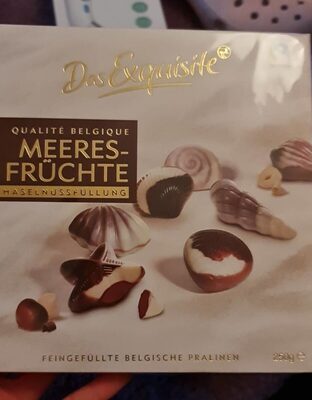
Barcode: 4305615839028
Meeresfrüchte
HALAL
📝 Reason: The product is considered Halal as it does not contain any Haram ingredients or E-codes listed in the Haram_Ecodes_list. The presence of ‘aroma’ without specific source information introduces doubt, but it does not override the Halal status of the product as per the strict rules provided. Islamic dietary laws as outlined in the Quran and Hadith emphasize the permissibility of all foods unless explicitly prohibited.
🏷️ Category: Snacks, Sweet Snacks, Cocoa And Its Products, Confectioneries, Chocolate Candies, Bonbons
📄 Certificates: Fair Trade, Fairtrade International, Made In Belgium, Vegetarisch
Ingredients:
Details
Understanding Meeresfrüchte’s Halal Status
When it comes to determining whether a product is Halal, numerous factors play a crucial role. Meeresfrüchte stands out as it holds a Halal status, based on an assessment of its ingredients and compliance with Islamic dietary laws. This article delves into the specifics, exploring each ingredient and why they maintain Halal compliance.
What Makes Meeresfrüchte Halal?
The Halal status of Meeresfrüchte arises from a careful inspection of its ingredients. The product contains no Haram substances or E-codes typically associated with forbidden items. Islamic dietary laws, outlined in the Quran and Hadith, ascertain that all food is permissible unless specified otherwise.
Ingredient Breakdown
- Sugar: Generally considered Halal unless derived from Haram sources. Here, we find no indication of such sources, making it a permitted ingredient.
- Vegetable Fat (Palm): Plant-derived and well-recognized as Halal. Palm oil is widely used in food products, affirming its status.
- Hazelnuts: A natural nut, hazelnuts are entirely plant-derived and fit seamlessly into a Halal diet.
- Calcium Carbonate (E170): This mineral is an additive commonly used in food products. It’s categorized as Halal, adding to the product’s credibility.
- Alkalized Low-Fat Cocoa Powder: Cocoa originates from the cacao plant and is regarded as Halal.
- Lecithins (E322): While lecithins can come from various sources, they are typically derived from plants like soy. As there’s no indication of a Haram source here, they remain Halal.
- Whole Milk Powder: This is a dairy product and is considered Halal.
- Cocoa Mass: Similar to cocoa powder, cocoa mass is derived from the cacao plant and thus Halal.
- Lactose: Derived exclusively from milk, lactose is confirmed Halal.
- Whey Powder (Milk): Another dairy-derived ingredient, whey powder aligns with Halal standards.
- Anhydrous Milk Fat: This ingredient is also milk-based, securing its Halal compliance.
- Aroma: The term ‘aroma’ lacks specificity. It can be derived from a variety of sources, some of which may be Haram. Without clear information about its source, it is classified as doubtful.
Certifications and Brand Context
Meeresfrüchte proudly carries several certifications, including Fair Trade and Fairtrade International. These endorsements highlight the product’s ethical sourcing and manufacturing processes, assuring consumers of its quality and integrity. Additionally, it’s notable that the product is made in Belgium, renowned for its quality snack manufacturing.
Conclusion
In conclusion, Meeresfrüchte is recognized as a Halal snack option, primarily due to its adherence to Islamic dietary guidelines. While the ingredient ‘aroma’ introduces a slight ambiguity, the overall assessment confirms the product’s suitability for Halal consumers. If you are looking for a sweet confectionery treat that complies with Halal standards, Meeresfrüchte could be a perfect choice for you.
